“You know, FDR. 16 years. Almost 16 years. He was four-term. I don't know, are we going to be considered three-term or two-term? You tell me.”
—Then-candidate Donald Trump speaking to the National Rifle Association, May 2024.
Four years ago at about this moment, in the still-early days of his administration, Joe Biden was taking a fateful ego trip.
The historian Jon Meacham, an occasional adviser and speechwriter to Biden, had organized a late-March gathering at the White House of other popular historians of a Democratic bent, including Doris Kearns Goodwin, Michael Beschloss, Michael Eric Dyson, Annette Gordon-Reed, and Walter Isaacson.
The money quote from Biden, as reported by Axios: "I'm no FDR, but … "
But nothing. Biden, like the president he served, Barack Obama, was being tempted with the seeming possibility of being the new Franklin Roosevelt, the most important and influential Democrat in the past century and a half. Obama managed a signature policy initiative and a solid reelection to a second term, but he didn’t get close to the father of the New Deal.
Biden, though, would get pushed out his own bid for a second term by his fellow Democrats. He would leave office with a job-approval rating in the 30s and blamed by both parties for the sorry state of affairs that led to the return of Donald Trump, which at the time of Biden’s session with the scribes in March 2021 would have been unimaginable to most—like hearing in 1933 that Herbert Hoover would win in 1936.
The 46th president was obviously enamored with the idea of “transforming the country in important ways in a short time”—playing with ideas like abolishing the Senate filibuster and packing the Supreme Court—as well as the idea, Heaven help us, that he was “cool.” Even cooler than Obama.
Biden and Obama were hardly the first Democratic presidents to be tempted or tortured by the comparison to Roosevelt. While Bill Clinton was always more interested in the Kennedy mystique—a young president, generational change, and sex, lots of sex—and Jimmy Carter was decidedly humble in his ambitions, Lyndon Johnson carried FDR’s legacy around like a monkey on his back. Everything Johnson did in his Great Society misadventure was haunted by comparisons to the New Deal.
What none of Roosevelt’s would-be imitators among his Democratic heirs ever seriously considered, though, was making a run at the one thing that sets FDR apart from every other president: defying George Washington’s example and serving more than two terms.
The shorthand from your high school history class was probably that with war already raging in Europe in 1940, Roosevelt was drafted to run for an unprecedented third term. But the “draft” was, of course, a campaign orchestrated by the incumbent and his team. They dumped the sitting vice president, John Nance Garner, who disapproved of the idea as monarchical, and replaced him with Henry Wallace, a kook who as the secretary of agriculture had become a favorite of the hardline progressives.
But the real swindle happened at the 1940 convention when a statement from Roosevelt was read from the dais. His message to the delegates was that he “never had, and has not today, any desire or purpose to continue in the office of president” and that “all of the delegates in this convention are free to vote for any candidate.” Which was, of course, hogwash. After stoking rumors and speculation that he would run, Roosevelt seemed to be pulling the rug out from under his supporters. And then, on cue, a crew in the basement of the convention hall in employ of Roosevelt's ally, Chicago Mayor Ed Kelly, cranked up a loudspeaker to fill the hall with piped-in chants of, “We want Roosevelt.”
A dirty trick if ever there was one. But if you’re an FDR admirer, you might call it a little old-fashioned rascality in service of keeping the world safe for democracy. If Roosevelt had not rigged the convention, would the Allies have even won the war? Maybe you think that it was a moment in history so perilous and Roosevelt a man so remarkable that Washington’s example had to be pushed aside for the sake of the nation.
If you did, you’d sound a lot like Trump’s message guru, Steve Bannon. “I'm a firm believer that President Trump will run and win again in 2028, so I've already endorsed President Trump,” he said in a recent interview. “A man like this comes along once every century, if we're lucky. We've got him now.”
Well, now.
“There is a rhetorical conveyor belt on which Trump’s ideas are carried out of the shadows of impossibility and into the broad daylight of inevitability. It starts as trolling or a joke, then it’s a bargaining position in service of a real policy issue … and then the last furlong is carried by an incredulous surprise that anyone would be shocked that he’s doing exactly what he’s been saying all along.”
But what about the 22nd Amendment to the Constitution? In 1951, Democrats made the tacit admission that Roosevelt had stayed too long, and a number of them joined with Republicans to put a hard cap on presidential terms.
The Amendment says: “No person shall be elected to the office of the President more than twice, and no person who has held the office of President, or acted as President, for more than two years of a term to which some other person was elected President shall be elected to the office of the President more than once.”
Trump’s allies were talking about changing that before he had finished the first week of his second term. “People are already talking about changing the 22nd Amendment so he can serve a third term,” Texas Lt. Gov. Dan Patrick offered in January. “If this pace and success keep up for 4 years, and there is no reason it won’t, most Americans really won’t want him to leave.” The same week, the first proposal to change the Constitution in Trump’s favor landed in Congress.
Like the Roosevelt men down in the basement with the microphones in 1940, team Trump is busy engineering a groundswell.
There is a rhetorical conveyor belt on which Trump’s ideas, or as Vice President J.D. Vance might say, “desires,” are carried out of the shadows of impossibility and into the broad daylight of inevitability. It starts as trolling or a joke, then becomes a bargaining position in service of a real policy issue—the old “seriously but not literally” rope-a-dope—and then the last furlong is carried by an incredulous surprise that anyone would be shocked that he’s doing exactly what he’s been saying all along. From irony to strategy to reality. Greenland is a gag. Greenland is actually about highlighting European security weaknesses. Greenland is deadly serious.
So it has gone with the idea of a third Trump term.
The “joke” part started as far back as 2020, when Trump told attendees at a campaign rally: “We are going to win four more years. And then after that, we’ll go for another four years.” Watch how he plays to the crowd, teasing his supporters with the idea of infinite MAGA.
By the 2024 race, the third term had become a pretty standard part of the Trump schtick. He would tease his supporters and torment his foes with the idea, but then dismiss it as a joke. “I don't know anything about [the 22nd Amendment]. I mean, you're telling me now that somebody's looking to terminate. I wouldn't be in favor of it. I wouldn't be in favor of a challenge. Not for me. I wouldn't be in favor of it at all,” Trump told Time in April of 2024. “I intend to serve four years and do a great job. And I want to bring our country back. I want to put it back on the right track.”
As soon as the election was won, though, Trump was back to dangling, telling House Republicans “who took it as a joke” in November: “I suspect I won’t be running again unless you say, ‘He’s so good we’ve got to figure something else out.’” Ha ha?
As soon as he was back in power, Trump kept pushing the idea, but again, as explicit trolling. “It will be the greatest honor of my life to serve not once, but twice—or three times or four times,” Trump said at his post-inauguration rally in Las Vegas in January. “Headlines for the fake news! No, it will be to serve twice. For the next four years, I will not rest.”
He’s kidding, and if you think otherwise you’re part of the lamestream media.
And yet, he persisted. The idea then moved into the essential gaslighting phase, with trying it out on House Republicans again at the same time the amendment resolution was being introduced. “I think I’m not allowed to run again. … Am I allowed to run again?” He even got into specifics, talking about his available campaign funds for another run, then looked at House Speaker Mike Johnson and said, “Mike, I better not get you involved in that.”
Because it would be bad for Johnson or because Trump would need Johnson’s help later in getting around the term limit or that Johnson, full of rectitude, might object? Who knows, but if you don’t get the hilarious joke about how much fun it is to troll the media and own the libs, you’re just being a snowflake, right?
Then we got to the bargaining part, as Trump used the idea of another run as a deflection to a question about whether he would endorse Vance as his successor. Trump, don’t you see, is just keeping his options open.
The president trotted it out twice more soon after, where else but at the National Prayer Breakfast and a Black History Month celebration? And as Trump pushed the idea, his normie defenders dismissed the anxieties about Trump running again, changing the Constitution, or looking for some legal loophole as preposterous.
Right up until this week, when Trump told NBC News, “No, no, I’m not joking,” about the third term. “There are methods which you could do it, as you know.”
Ulp.
The press did the same thing with Trump’s stubborn refusal to say that he would accept the results of an election he lost. It was a troll. It was a negotiating position. It was an attempted coup. This time, as the conveyor belt started lurching under our feet, most in the media went along for the ride on the third-term talk.
Now, we know that Trump isn’t going to be able to amend the Constitution to get a shot at FDR’s title as the longest-serving president. He probably couldn’t get two-thirds of Senate Republicans for that, let alone the Senate as a whole.
And it may be, contra Trump’s claim to NBC that he has “the highest poll numbers of any Republican for the last 100 years,” that all the talk will come to naught if his popularity continues on its present downward trajectory. A bad midterm, a recession, more scandals could all render Trump’s desires as moot. Plus, he’s the oldest person ever elected to the presidency, so maybe he won’t even be physically able to run again (not that it stopped Roosevelt in 1944).
But we ought to at least stick with taking Trump literally and seriously for now. What crisis might befall us that could cause enough panic and instability that people would start talking about the need to keep Trump in power? What legal or extralegal maneuvers might his lieutenants use to make it possible? We know that if Trump had Vance in 2021 instead of Mike Pence as vice president, the effort to steal a second term might have succeeded, or at least thrown the country into a constitutional crisis and the kind of negotiated settlement that resolved the election of 1876.
Again, it’s not likely. The most likely scenario still has to be that Trump will be a true lame duck after the midterms and finds his power substantially diminished in divided government. But a third term is worth treating as a credible threat. And if it goes nowhere, you know what they’ll say: Lighten up, snowflake. He was just kidding.
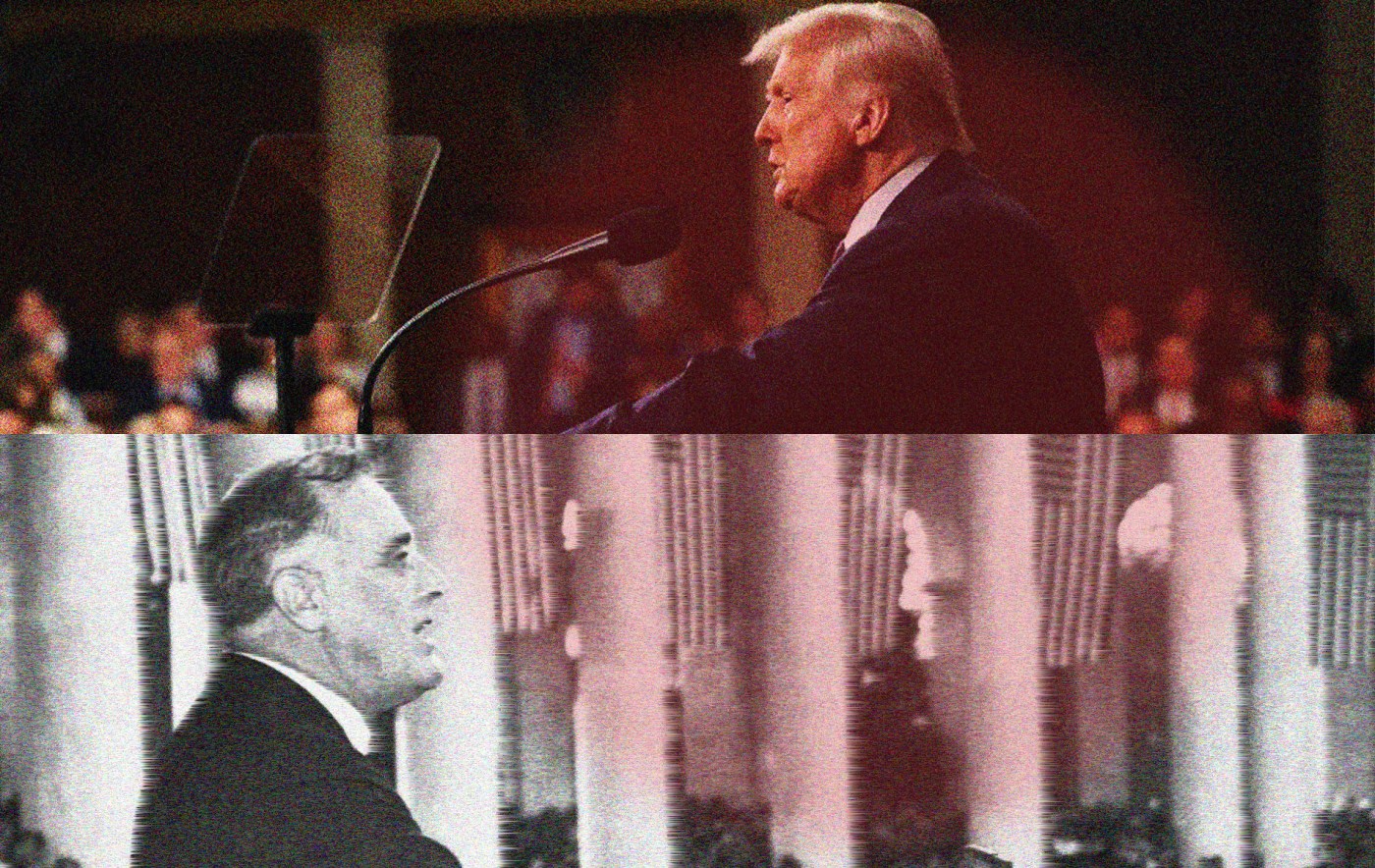

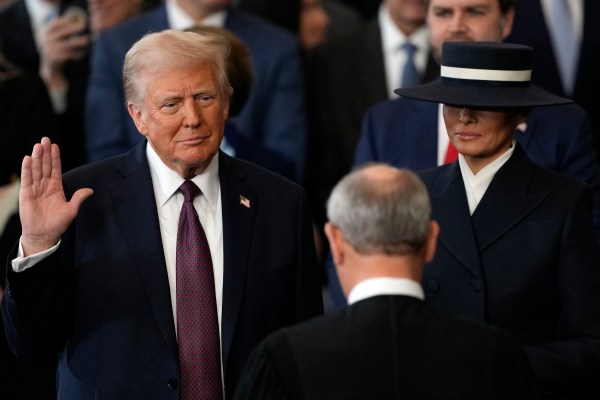
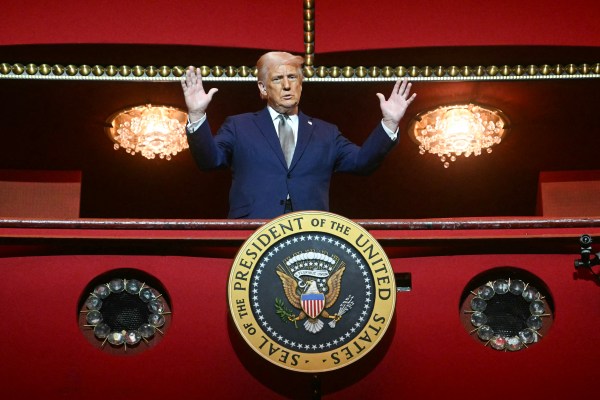
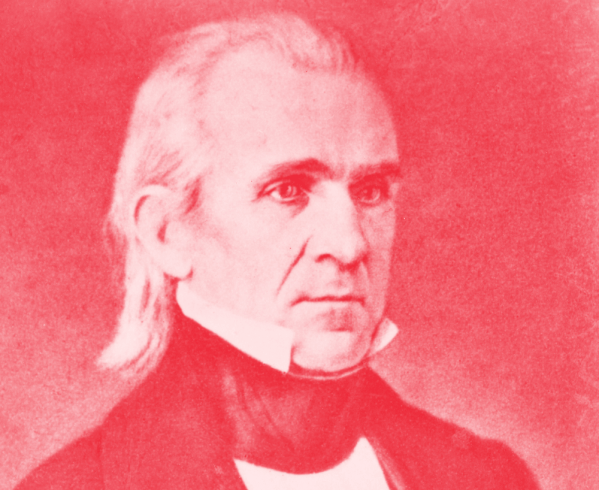

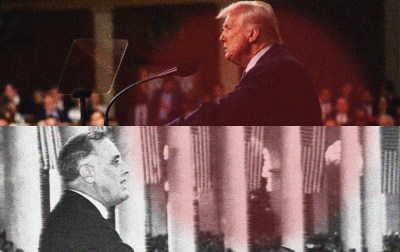
Please note that we at The Dispatch hold ourselves, our work, and our commenters to a higher standard than other places on the internet. We welcome comments that foster genuine debate or discussion—including comments critical of us or our work—but responses that include ad hominem attacks on fellow Dispatch members or are intended to stoke fear and anger may be moderated.
With your membership, you only have the ability to comment on The Morning Dispatch articles. Consider upgrading to join the conversation everywhere.